Given is a beautifully animated slice-of-life about musicians, high school, and the ever painful coin toss of grief and love. It seems trifling in its aesthetics and BL genre, but that cannot be further from the truth as it tackles grander themes, diving into what it means to love and, oftentimes, what we lose because of it.
I’m a big sucker for anything music-related. Throw a treble clef in there and I’ll tag along for the ride even though my tired eyes demand sleep. In Given, we meet Mafuyu Sato, who carries around an out-of-tune guitar, not knowing how to play it, and Ritsuka Uenoyama, who does but sincerely wants a nap.
Through a crash course of Sato looking like a wounded puppy and Uenoyama guilt-tripped by the smaller boy’s appearance, they become unlikely friends and Sato eventually joins Uenoyama’s band with college students Akihiko Kaji and Haruki Nakayama.
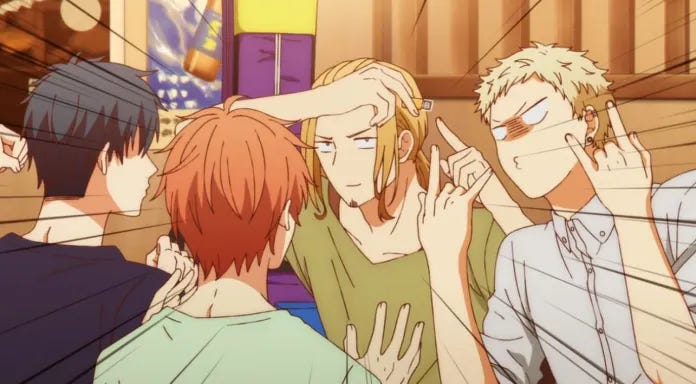
Enter the normal events of band practice, venue rehearsals, instrument/gear shopping— the great, lively gist of walking around outside and enjoying the moment with music dictating the hours, finally climaxes in the first and final performance of the season and it. Is. Chilling.
Dribble in a generous amount of interband romance and confused feelings on the backdrop of musical notes and you have Given. A short season with a few movies that is funny, emotional, and absolutely raw.
Because you start the series thinking it will be a soft, fluffy BL with music interspersed to make it interesting and as you go along you realize with absolute, sinking fear:
This show is about death.
This show is about death and the grief that crashes down after.
[If you haven’t yet, please watch this anime. It’s good. It’s short. It will make you cry. And I like making people cry. In a good way. Then we can talk about it!]
Grief
Grief is the overarching theme for the entire series that we don’t fully realize is a main theme until the almost end. We catch glimpses of it in Sato’s flashbacks and when his old friends come to greet him, but the entire thing hits a crescendo when the full-story of grief is revealed in EP 9.
That pinnacle moment where we realize what happened to Sato’s former boyfriend and how Sato is riddled with survivor’s guilt and shame because he feels responsible for a death no one had control over.
That moment of realization is a wave crashing into our psyche because Sato’s detached, rather uninterested, personality could be directly linked to the 5 stages of grief: denial, anger, bargaining, depression, and acceptance.
I have conveniently reorganized the stages to how Sato most seemingly progresses through these stages. Don’t call me out on getting the order wrong, please, I’m sensitive.
Denial
Grief isn’t linear. It’s often thought of in this order, but according to Kübler-Ross, people can experience these aspects of grief out of order.
Sato spends most of the series in denial. He picks up the guitar and joins a band as a response to this grief, but he is stuck in this stage for the longest time, so much so that it becomes a definitive personality trait of his that demarcates him from his peers.
We realize that Sato staring off into the distance isn’t him trying to be aloof, but him seeing his lost loved one as if he were still alive. There is a numbness and indifference to Sato that Uenoyama eventually cracks, but is his defense mechanism against being hurt again.
Depression
Similarly to denial, Sato delves in depression, expressed in his unemotional way. If we took his depression at face-value, as “expressing a negative or hopeless outlook, losing interest in things…sharing feelings of shame, guilt, or worthlessness,” then Sato is steeped in these two stages for the majority of the show.
Grief, at any stage of life, can be catastrophic. Pair this sudden passing of his lover with the turmoil of high school and hormones? An absolute disaster waiting to happen and I love that there is a happy ending. Never fret. There is a happy, gay rainbow at the end of this trauma.
One of the scariest things in this show was how effortlessly Sato wallowed in this depression with no one noticing. We are with him a majority of the time, seeing his loneliness, the emptiness that was his life before music stepped in, but it’s so subtle that it flies under the radar.
Not in the expected visual representation of darkness and agony and anime mushrooms stylizing his corner. But he is. Sato is battling this depression the entire time and we don’t know, don’t realize, until much, much later.
Bargaining and Anger
These last three stages all happen in the span of 3 minutes. It’s an absolute rollercoaster of emotions in EP 9, but one that is warranted and just makes sense.
Bargaining comes with ruminations on the future or past as well as feelings of guilt and shame, while anger can be directed towards yourself or other people or even a loved one who’s gone.
Sato singing “A Winter Story” is a hash of bargaining and anger as he reminisces on the past and his relationship that was, the anger he feels at his late loved one for leaving, the absolute crushing guilt and hatred he feels for himself for asking a hurtful question and then living to know the answer.
In this moment we realize it is his fault. It was all his fault.
But that, at the same time, it wasn’t.
Acceptance
The emotional story ends before the season does, but boy is it satisfying because Sato finally, finally forgives himself. Realizing the guilt he was living with, the symptoms plaguing his everyday, and then the shattering acceptance he grants himself is so cathartic when it happens.
The animators showed people in the crowd crying, but my tear ducts didn’t need that visual cue to turn on the waterworks.
Sato finally redeems himself in his own eyes and forgives himself.
Love
The saddest thing on the flipside of this grief is that it was caused by love. And then it was that same love and acceptance that inevitably saved Sato from himself.
The ugly side of love— the one that breeds insecurities and festers its worries and lashes out in fear— that can hurt people. Others, or ourselves. It’s…always going to be there.
But don’t let that stop you from loving or being loved.
As much as it hurts to share your heart with someone, I can guarantee it will always be worth it.
‘Tis better to have loved and lost than never to have loved at all.
-Alfred Lord Tennyson






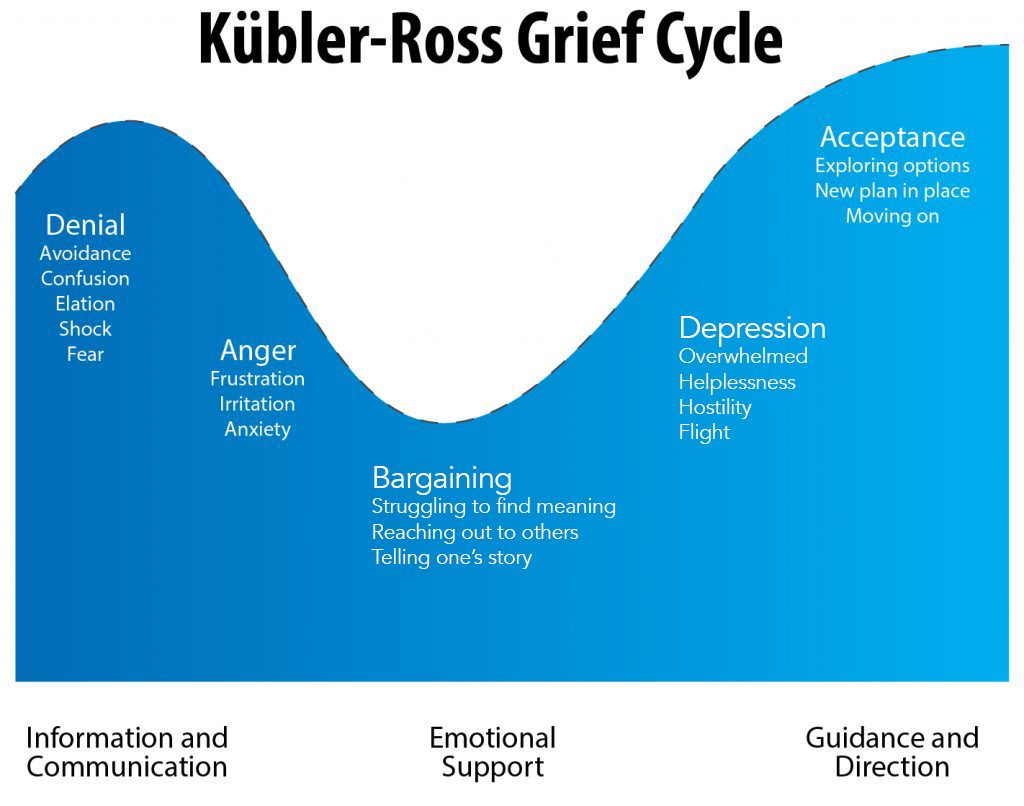
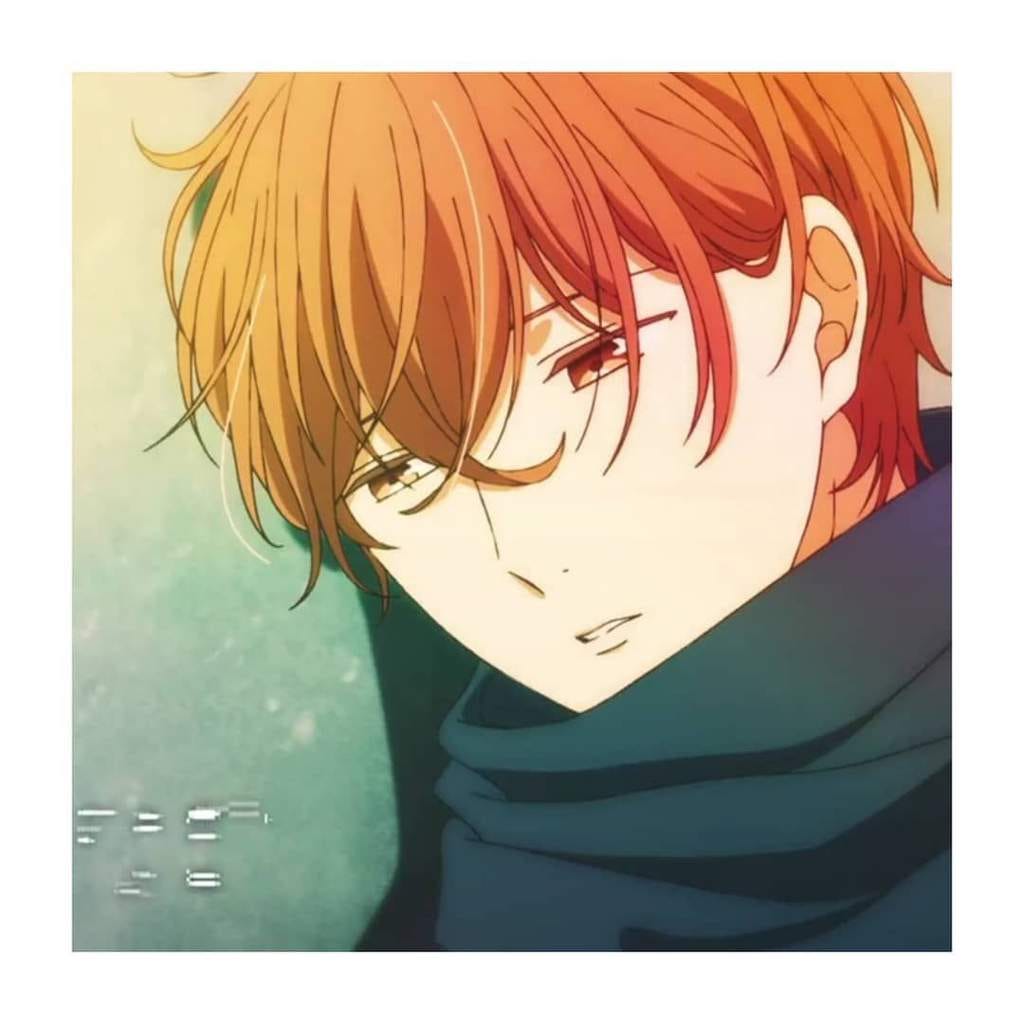

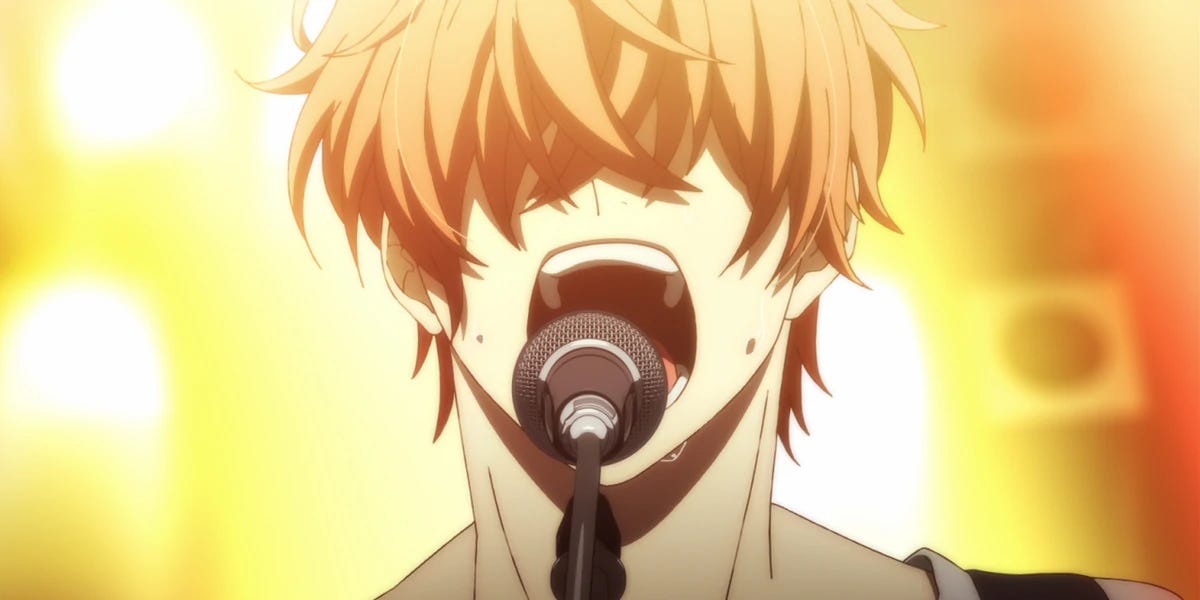
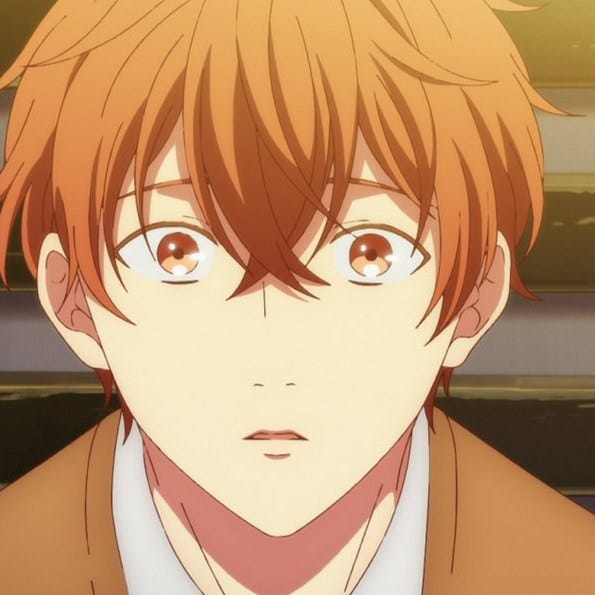
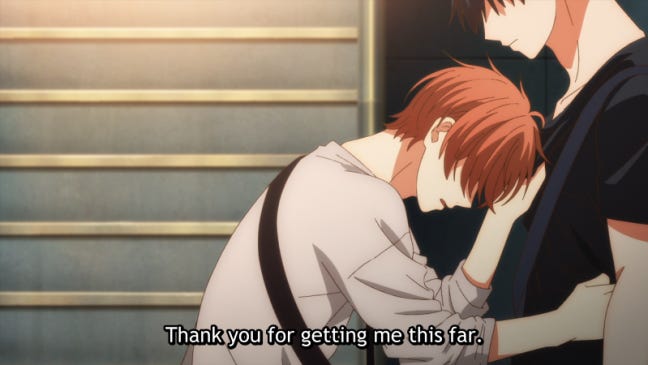
Shay 😭
I found this to be a lovely synopsis on grief within given, and honestly challenge you to take it a bit further with analyzing the college students of the band and what we see of them in the movie. This series quickly became one of my favorites due to the fact that it’s far more than what you’d thing a BL would be at times. It felt refreshing for me that the queerness wasn’t the main point(hey, I love me a good gay love story) but it’s shown in a way that I feel queerness should be shown? More normalized and not made to be a spectacle(as much as it can be in other media). The twist really changes your entire perspective on these characters and their lives and makes them so much more real. It’s a reason why I love it. Thank you for talking about this series!!